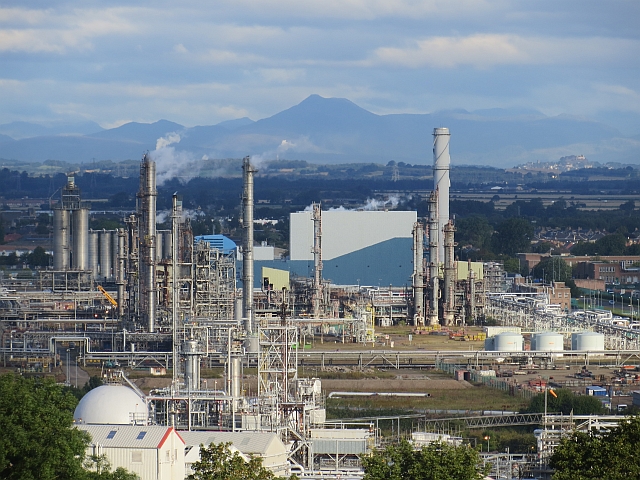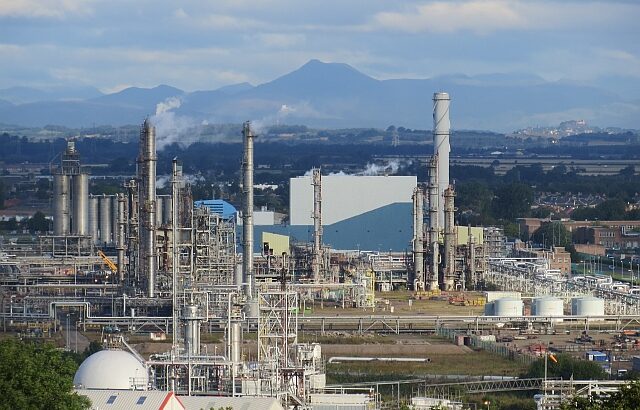Closure of Grangemouth Refinery
This week Ineos announced that they will stop refining oil at their Grangemouth facility. This will leave Scotland with no oil refining capacity. What will happen to the metro-chemical plant on the same site? Will Ineos go ahead with its plans to run Grangemouth on hydrogen? We don’t know.
Jim Stamper has written this article about the implications and possible responses to the refinery closure. It appeared in TalkingUp Scotland on 25 Nov. Jim is an active member of our Greater Glasgow Group.

The Consequences of Private Ownership?
The real reason for the intended closure of Grangemouth refinery is the same as the reason for the huge increase in energy costs in the UK leading to very high inflation and the subsequent reduced value of wages and increased poverty. That reason is the privatisation of our oil and gas resources and industries by UK Governments. The private oil and gas companies have no obligation to provide oil and gas to the UK. So even although we have these resources in our territorial waters we had to compete for oil and gas supplies on the world market and prices increased hugely due to the Ukraine Russia war.
Grangemouth is shutting down processing because the private company’s priority is maximising profit. If processing can be carried out cheaper elsewhere the company will stop processing here. Any damage to the workforce and the surrounding area or the effects on Scotland and its economy are not the company’s priority.
Public Ownership?
As the Grangemouth processing plant and the workforce are of no value to them then why not take it into public ownership. Its existing function could continue with carbon capture in the Acorn project. That part of the Grangemouth plant proposed to handle imports would no longer have value to the current owners.
The oil refining in public ownership could gradually be reduced until no longer required and replaced by green energy produced in Scotland. Avoiding profiteering privatisation of that green energy and keeping it in public ownership should make the just transition easier.
Our low cost, never ending green energy will reverse the price increases generally. Industry wanting low cost energy and to meet customer demand for green energy produce will be attracted here, improving further Scotland’s economy.
